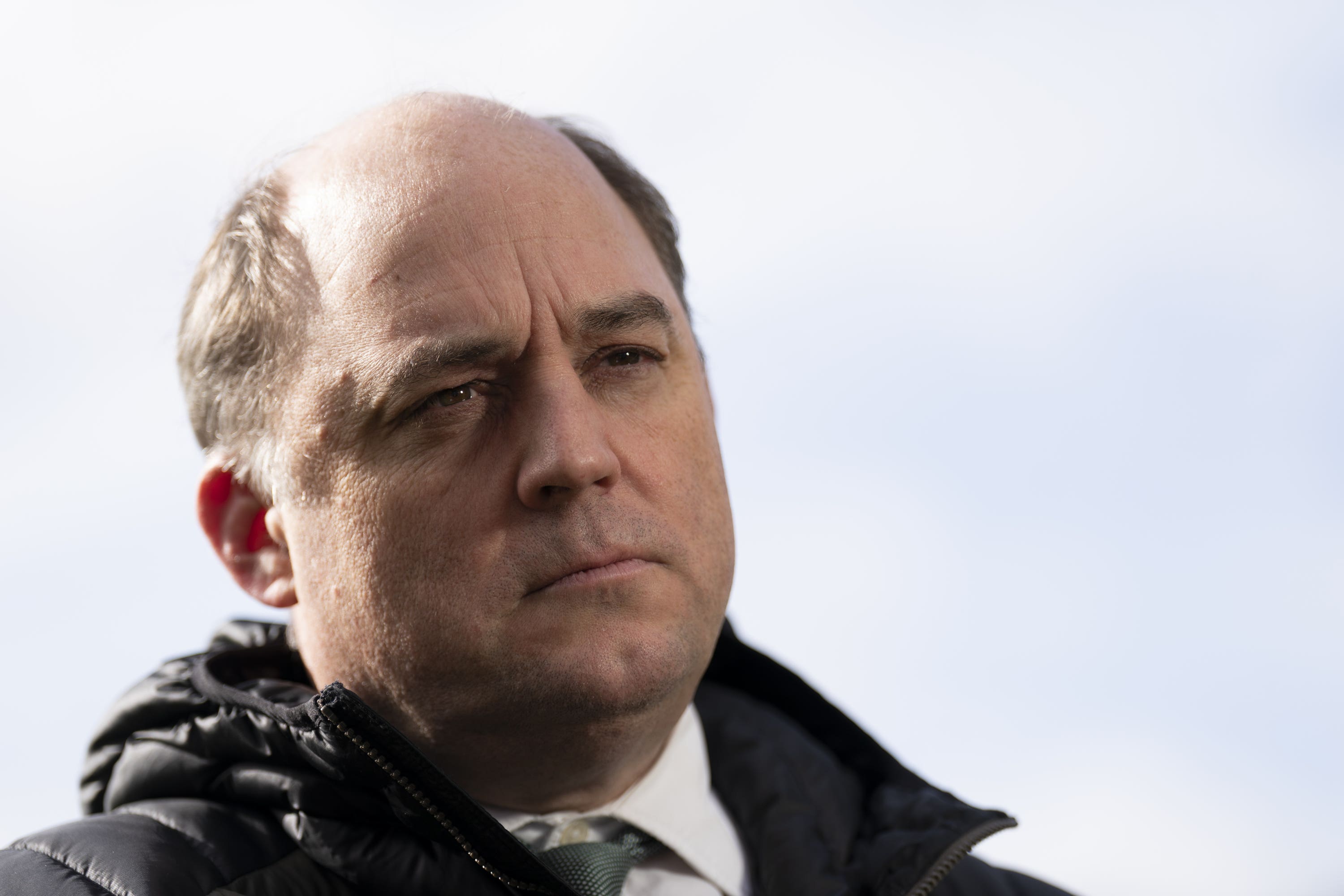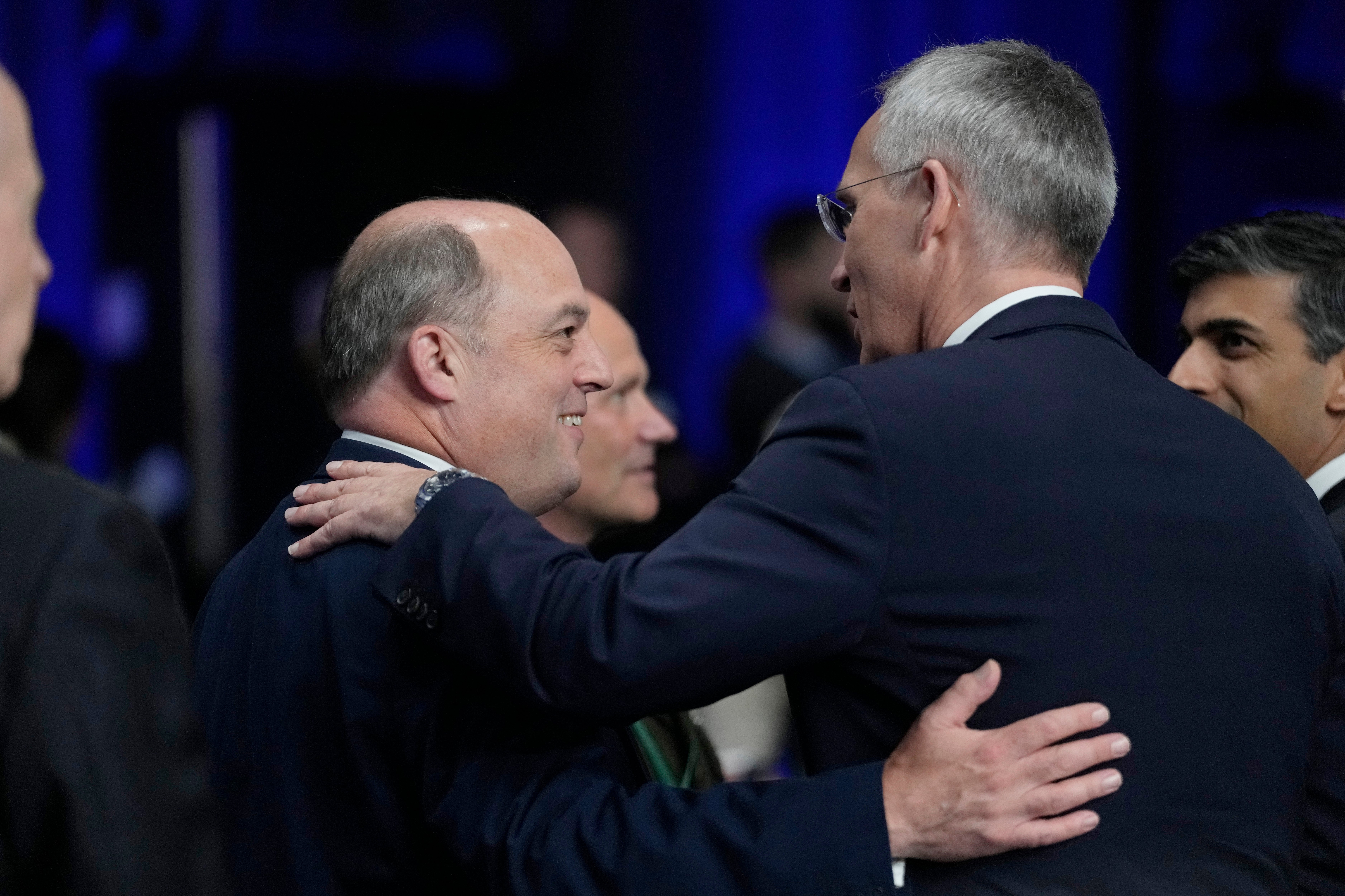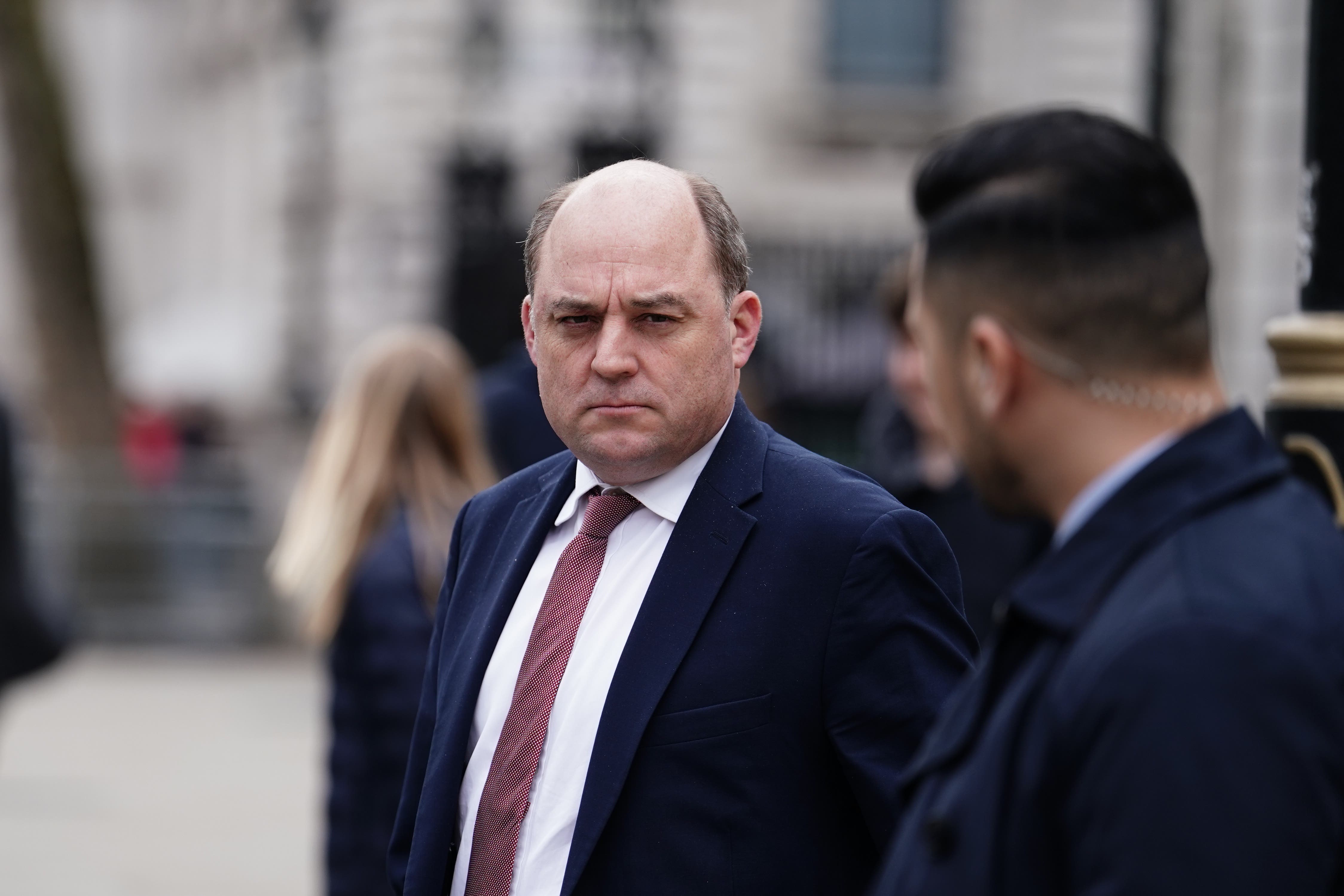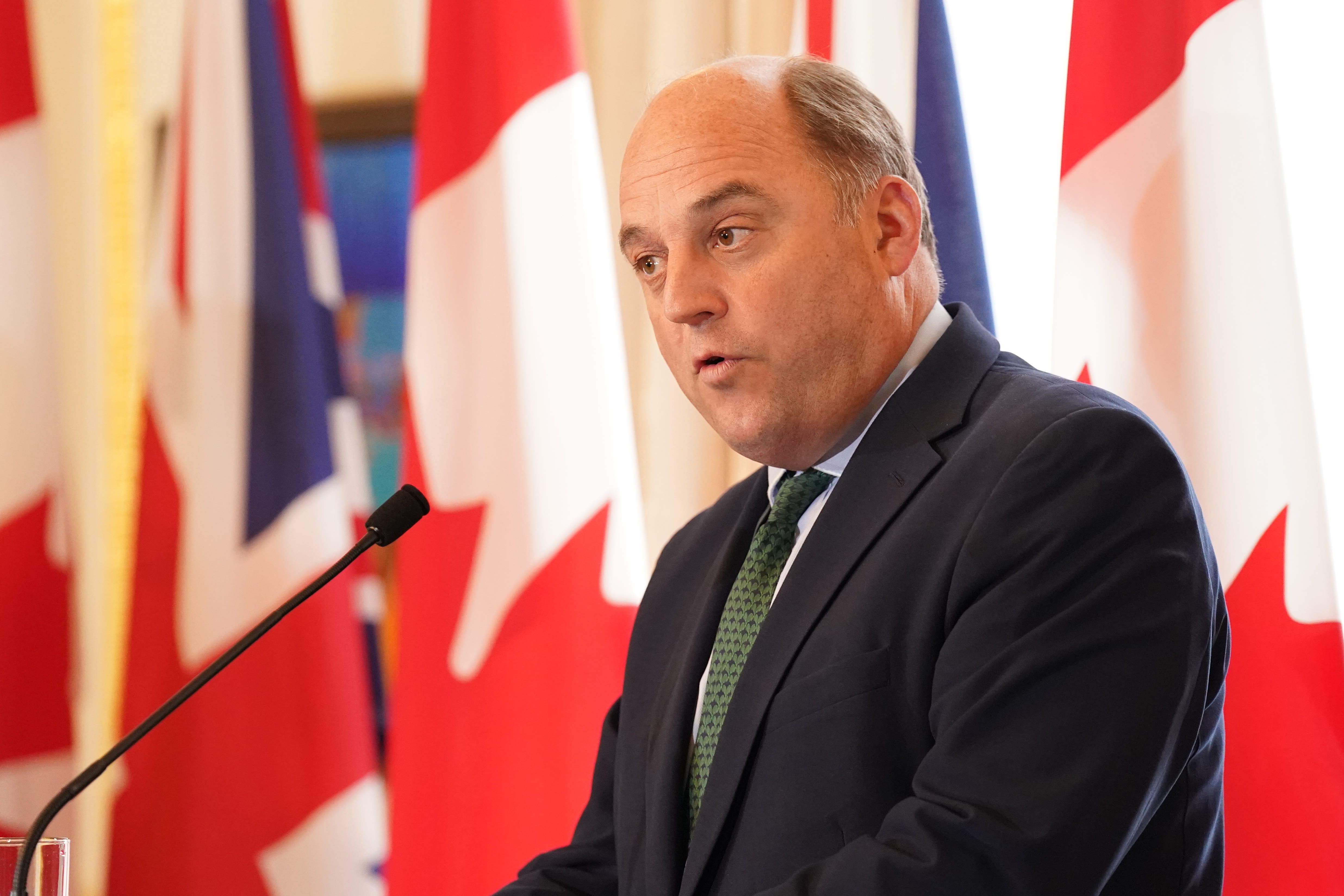Ben Wallace: Former favourite for PM whose global ambitions were thwarted
The outgoing defence secretary had made no secret of his desire to become Nato secretary general, but found a series of obstacles in his way, writes world affairs editor Kim Sengupta


When Liz Truss departed No 10 following her calamitous and extraordinary 49 days in Downing Street, Ben Wallace was the bookmakers’ favourite to succeed her after his stock and profile had risen over his handling of the Ukraine war.
The defence secretary was going to be the “unity candidate” for party members following unrelenting Tory turmoil. In the event, to widespread surprise, Wallace refused to run. “I feel that I can add the best value in keeping people safe at defence. It’s the job I intend to stay doing, so I’m not going to be standing for prime minister this time,” he said as he sought to explain his decision.
Those close to Wallace stressed that he genuinely enjoyed being in the field of military and geostrategic planning. He made no secret that his dream job was to be the next Nato secretary general. And his early and robust support for Ukraine, it was thought, would put him in a good position, as Europe scrambled to be combat-ready in the face of Vladimir Putin’s invasion.

But Wallace, a former captain in the Scots Guards, failed to become the first British Nato chief since George Robertson, who led the alliance between 1999 and 2003, after the war in Kosovo.
His failure was due to a variety of factors. There is no evidence that Wallace was blocked because of Joe Biden’s intrinsic anti-Britishness, as some right-wing media and right-wing politicians have been claiming.
The American factor that may, however, have counted against the British defence secretary was that he had irritated powerful people in Washington by putting himself at the forefront of pushing to hasten the delivery of arms to Ukraine.
That, of course, is ironic now, his having made headlines during the Nato summit for saying that the West was not an “Amazon” service for weapons for Kyiv, and that Volodymyr Zelensky’s government should show more gratitude.
There were other obstacles. Emmanuel Macron wanted a Nato chief from a European Union state. He was also said to be smarting over the Aukus treaty between Australia, the UK and the US, which scuppered the lucrative sale of French submarines to Australia.
The argument was rehashed that, as Britain traditionally holds the role of deputy saceur ( Supreme Allied Commander Europe), below a commander who is always American, there was no reason why London should hold a second senior post in the alliance.

There was also a feeling that the time had come for a woman to occupy the role. The term of Jens Stoltenberg as Nato secretary general has been extended for a year, but a number of names have been mentioned for his successor, among them Danish prime minister Mette Frederiksen and the European Union commissioner Ursula von der Leyen, who is from Germany.
Alongside the failure of his Nato ambitions, Wallace was also set to lose his seat of Wyre and Preston North in boundary changes – and with that came persistent rumours that Wallace, one of the longest-serving Conservative defence secretaries, would lose his post in Rishi Sunak’s autumn reshuffle.
With the Conservatives looking highly unlikely to win the next election, Wallace was said to be increasingly unwilling to go through the trouble of finding another seat only to spend years on the opposition back benches. He planned to announce during the summer recess that he would be leaving politics at the next election.
However, Downing Street sources supposedly started briefing journalists last week that Wallace would be standing down at the next election, prompting his announcement on Saturday.
In an interview with The Sunday Times, Wallace said he was proud of what he had achieved in his current role. He has secured a £24bn budget increase, investment in army modernisation, and a significant programme of reform.

“I took over a department that had suffered 30 years of cuts, and conceded that the whole of government was about health and education, while defence was just a discretionary spend. What I hope I’ve managed to do [in] the last four years is unlock genuinely new money, and win the argument that defence is core,” he said.
The state of the UK’s military, however, is the topic of intense debate. Wallace himself has acknowledged that the UK’s armed forces have been left “ hollowed out”.
Three months ago, the government gave £5bn to the Ministry of Defence to be spread over two years. £3bn of that went to the fleet of nuclear submarines, while £2bn went to the army, but only to replace ammunition stockpiles sent to Ukraine, not to cover a host of other needs.
The army, according to some officers, faces a further cut in numbers from an already low 73,000 to 70,000. To put this in context, a force of fewer than 100,000 is technically not an army but a self-defence force. In topical terms, the East India Company, Britain’s historical equivalent of Russia’s Wagner Group, had 250,000 men under arms in the 19th century.
The Ministry of Defence denies that further cuts are planned. Commanders say that in the current battlespace, it is not just numbers that matter, but knowhow; the combining of troops, armour, aircraft including drones, and also cyber and AI. This innovative, integrated approach will be presented at the Defence Command Paper refresh this coming week.
Britain’s fourth Afghan war ended with an ignoble retreat under Wallace’s watch, alongside the retreat of other Western forces. The defence secretary wanted a longer timescale in order to complete an organised evacuation, but there was nothing that Britain or other countries could do after Joe Biden refused to budge from the timeline he had set out.
Like many in the military and the diplomatic service, the Ministry of Defence and the Foreign Office, Wallace is deeply concerned about the Afghans who have been left behind, vulnerable to persecution by the Taliban. He has worked hard behind the scenes to address the situation. Out of government, he will be in a position to be more vocal about the plight of these abandoned allies and Britain’s duty to get them to a place of safety.






Join our commenting forum
Join thought-provoking conversations, follow other Independent readers and see their replies
Comments